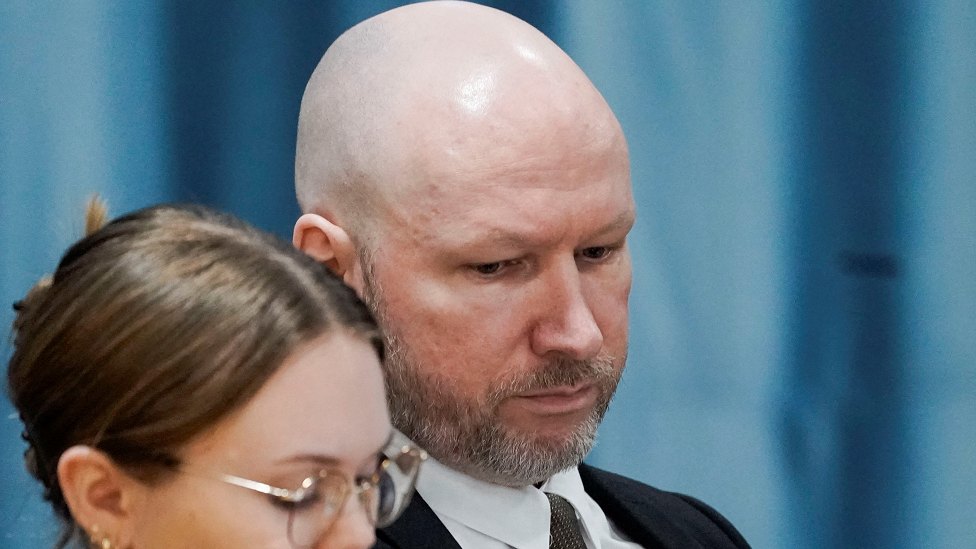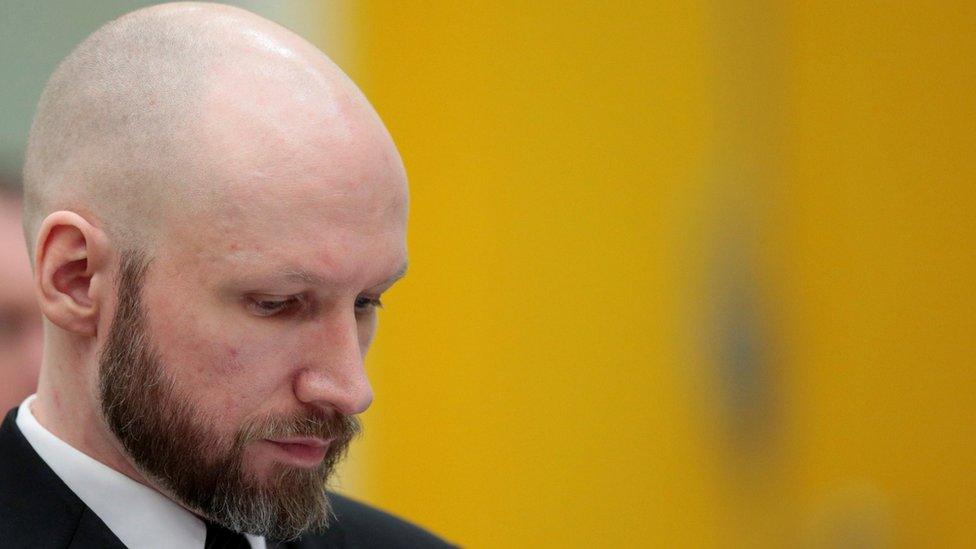Anders Breivik: Mass murderer sues Norway over prison isolation
- Published

Anders Breivik appeared at a court hearing convened in Ringerike prison on Monday
A neo-Nazi who killed 77 people in Norway in 2011 is suing the country in a bid to end his years in isolation.
Anders Breivik, who killed eight people with a car bomb in Oslo and shot dead 69 people at a summer youth camp, says his conditions breach his human rights.
Norway's justice ministry says he must be kept separate from the prison population over security concerns.
Breivik's lawyers told a court on Monday the 44-year-old no longer wishes to live.
"He has been isolated for about 12 years... He lives in a completely locked world," his lawyer, Oeystein Storrvik, told a court hearing on Monday.
"He does not wish to be alive anymore," he added.
Breivik is also asking the court to lift restrictions on his correspondence with the outside world.
Breivik was sentenced to 21 years - the maximum penalty a court in Norway can impose, though it can be extended for as long as he is deemed a threat - for carrying out the attacks on 22 July 2011.
He has challenged the terms of his sentence before, winning part of his human rights case against the Norwegian state in 2016 before it was overturned the following year.
The 44-year-old currently spends his time in a dedicated section of Ringerike prison - located on the shores of the lake that surrounds the island of Utoeya, where he shot dead 69 people.
Many of those killed on Utoeya were teenagers involved with the Norwegian Labour Party's youth wing, the AUF. The attacks remain Norway's worst peacetime atrocity.
At the prison, Breivik has access to a training room, kitchen, TV room and a bathroom, which pictures from a visit last month by Norwegian news agency NTB showed.
Lawyers for the justice ministry argue Breivik enjoys "a wide range of activities" such as cooking, games, walks, basketball and studies.
They also say his isolation is "relative" as he has contact with guards, a priest, health professionals and, until recently, a volunteer who Breivik no longer wishes to see.
He also sees two inmates for an hour every other week, the lawyers said.
"An extraordinarily dangerous inmate requires extraordinary measures," Andreas Hjetland told the court on Monday.
"He is still proud of what he has done. He still holds the same ideological views," Hjetland said.
The judge will deliver a verdict in the coming weeks. There is no jury.
Ingrid Kragh Swang, whose eldest son survived the attack on Utoeya, told Norweigan broadcaster NRK, external she was "sick and tired of this being brought up again and again".
"It wears us down and tears something up in us," she added.
Breivik unsuccessfully applied for parole in 2022, with the court ruling he had not changed and remained a risk to society.
Related topics
- Published1 March 2017

- Published15 March 2016